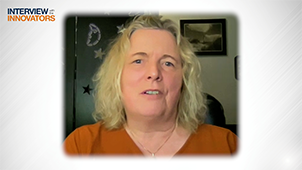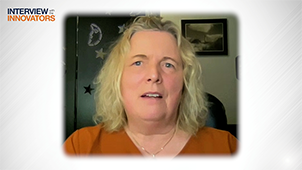In this sixth installment, Ms Carroll discusses the TRADE study with abemaciclib and emphasizes the importance of individualized patient care, clear communication about dosing goals, and teamwork among healthcare providers to implement dose escalation effectively. This strategy aims to address patient concerns about side effects while ensuring adherence to the full treatment plan. Learn More ›
In this fifth installment, Ms Carroll discusses strategies for managing adverse events associated with abemaciclib, emphasizing the importance of patient involvement and personalized care. She underscores the value of maintaining open communication and regular touchpoints with patients to address concerns, build trust, and ensure adherence to therapy. These strategies aim to improve the quality of life for patients on abemaciclib. Learn More ›
In this fourth installment, Dr Moore shares strategies for optimizing abemaciclib treatment through dose escalation and proactive toxicity management. She emphasizes patient education on managing common side effects and highlights the importance of ongoing patient engagement through touchpoints and clear communication to ensure successful treatment outcomes. Learn More ›
In this third installment, Dr Moore shares insights from the TRADE study, which evaluated a dose-escalation strategy for abemaciclib in patients with HR-positive, HER2-negative, high-risk breast cancer. Dr Moore emphasizes the importance of combining TRADE study findings with real-world evidence to refine dose-escalation strategies and improve patient outcomes. Learn More ›
In this second installment, Dr Mayer discusses her insights from the results of the adjuvant TRADE study and how the dose-escalation approach for abemaciclib used in the study can help patients better manage side effects and stay on therapy, ultimately improving outcomes. Learn More ›
In this first installment, Dr Mayer discusses the results of the adjuvant TRADE study and how it was successful in identifying a dose-escalation strategy for abemaciclib that allowed a significant number of patients to reach and maintain the target with very few patients discontinuing therapy. Learn More ›
For this Interview with the Innovators series, several interviews were conducted with executives and scientists from Genmab, an international biotech company with 24 years of experience in developing cutting- edge antibodies and antibody technology. Learn More ›
This first installment observes how the adjuvant treatment landscape has evolved for patients with HR+/HER2- early breast cancer, including discussion on the monarchE study. Learn More ›
This second installment discusses data presented at ESMO 2023 on prognostic markers for patients with early breast cancer, highlighting data from the monarchE study, the NATALEE study, and the BCIRG 001 and 005 trials. Learn More ›
This third installment observes data presented at ESMO 2023 on neoadjuvant immunotherapy in breast cancer, with a discussion of the KEYNOTE-522 study, NeoTRIP study, KEYNOTE-756 study, and the EMBER-2 study. Learn More ›











